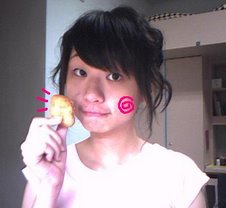William Shakespeare - To be, or not to be (from Hamlet 3/1)
To be, or not to be: that is the question:
Whether 'tis nobler in the mind to suffer
The slings and arrows of outrageous fortune,
Or to take arms against a sea of troubles,
And by opposing end them? To die: to sleep;
No more; and by a sleep to say we end
The heart-ache and the thousand natural shocks
That flesh is heir to, 'tis a consummation
Devoutly to be wish'd. To die, to sleep;
To sleep: perchance to dream: ay, there's the rub;
For in that sleep of death what dreams may come
When we have shuffled off this mortal coil,
Must give us pause: there's the respect
That makes calamity of so long life;
For who would bear the whips and scorns of time,
The oppressor's wrong, the proud man's contumely,
The pangs of despised love, the law's delay,
The insolence of office and the spurns
That patient merit of the unworthy takes,
When he himself might his quietus make
With a bare bodkin? who would fardels bear,
To grunt and sweat under a weary life,
But that the dread of something after death,
The undiscover'd country from whose bourn
No traveller returns, puzzles the will
And makes us rather bear those ills we have
Than fly to others that we know not of?
Thus conscience does make cowards of us all;
And thus the native hue of resolution
Is sicklied o'er with the pale cast of thought,
And enterprises of great pith and moment
With this regard their currents turn awry,
And lose the name of action. - Soft you now!
The fair Ophelia! Nymph, in thy orisons
Be all my sins remember'd.
==========================================
* noble – having fine personal qualities that people admire, such as courage, honesty and care for others
* sling – (in the past) a simple weapon made from a band if leather, etc., used for throwing stones
* outrageous – very shocking and unacceptable
* take against sb/sth – to start not liking sb/sth for no clear reason
* end – a person’s death. People say ‘end’ to avoid saying ‘death’.
* heir – a person who has the legal right to receive sb’s property, money or title when that person dies
* consummation – the fact of making sth complete or perfect
* devoutly – believing strongly in a particular religion and obeying its laws and practices
* perchance - perhaps
* ay – aye - yes
* rub – a problem or difficulty
* shuffled – to walk slowly without lifting your feet completely off the ground
* pause – a period of time during which sb stops talking or stops what they are doing
* calamity – an event that causes great harm or damage
* whip – a hit by a long thin piece of rope
* scorn – a strong feeling that sb/sth is stupid or not good enough, usually shown by the way you speak
* oppressor – a person treats sb in a cruel and unfair way, especially by not giving them the same freedom, right, etc. as other people
* pang – a sudden strong feeling of physical or emotional pain
* spurn – to reject or refuse sb/sth, especially in a proud way
* merit – the quality of being good and of deserving praise, reward or admiration
* grunt – to make a short low sound in your throat, especially to show that you are in pain, annoyed or not interested
* dread – a feeling of great fear about sth that might or will happen in the future; a thing that causes this feeling
* hue – a color
* resolution – the power of a computer screen, printer, etc. to give a clear image, depending on the size of the dots that make up the image
* sickly o'er - sickly over – to become paler then usual, and unhealthy
* pith – the essential or most important part of sth
* regard – attention to or thought and care for sb/sth
* current – the fact of particular ideas, opinions or feelings being present in a group of people
* awry – not in the right position
* nymph – a spirit of nature in the form of a young woman, that lives in rivers, woods, etc.
* thy - your
* sin – an offence against God or against a religious or moral law
May 31, 2007
Subscribe to:
Post Comments (Atom)





No comments:
Post a Comment